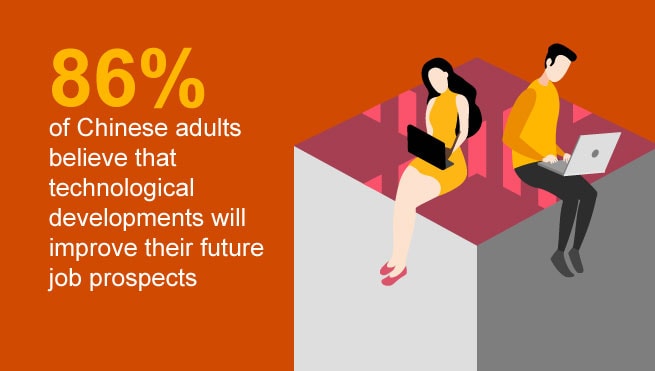{{item.title}}
{{item.text}}

{{item.title}}
{{item.text}}
Everyone should be able to live, learn, work and participate in the digital world
Our jobs are changing, and fast. Many roles are disappearing altogether, while new ones are springing up. The discrepancy between the skills people have and those needed for jobs in the digital world is one of the most critical problems of our time.
The need to upskill is a complex problem that will require decision-makers — educators, national, regional and local government administrators and business leaders — to come together.
Over the next four year we are upskilling each of our 276,000 people, and are investing $3bn in upskilling – primarily training our people, and also developing technologies to support our clients and the community. Together we can grow tomorrow’s workers today. In the process, we’ll make the world a more resilient, more capable and more inclusive place.

A call to action.
Duration: 00:02:57
The digital revolution requires a skills revolution. The skills revolution is about helping people build their digital awareness, understanding and skills to fully participate in the digital world — and it needs to start now.
At PwC, we are working with other organisations across the world, building on our work with clients and on upskilling our 276,000 people. Still, more must be done if we are to ensure everyone has the opportunity to learn, work and participate in the digital world. This is at the heart of our purpose.
We’ve pulled together research and insights to guide your decision-making on how to upskill.



